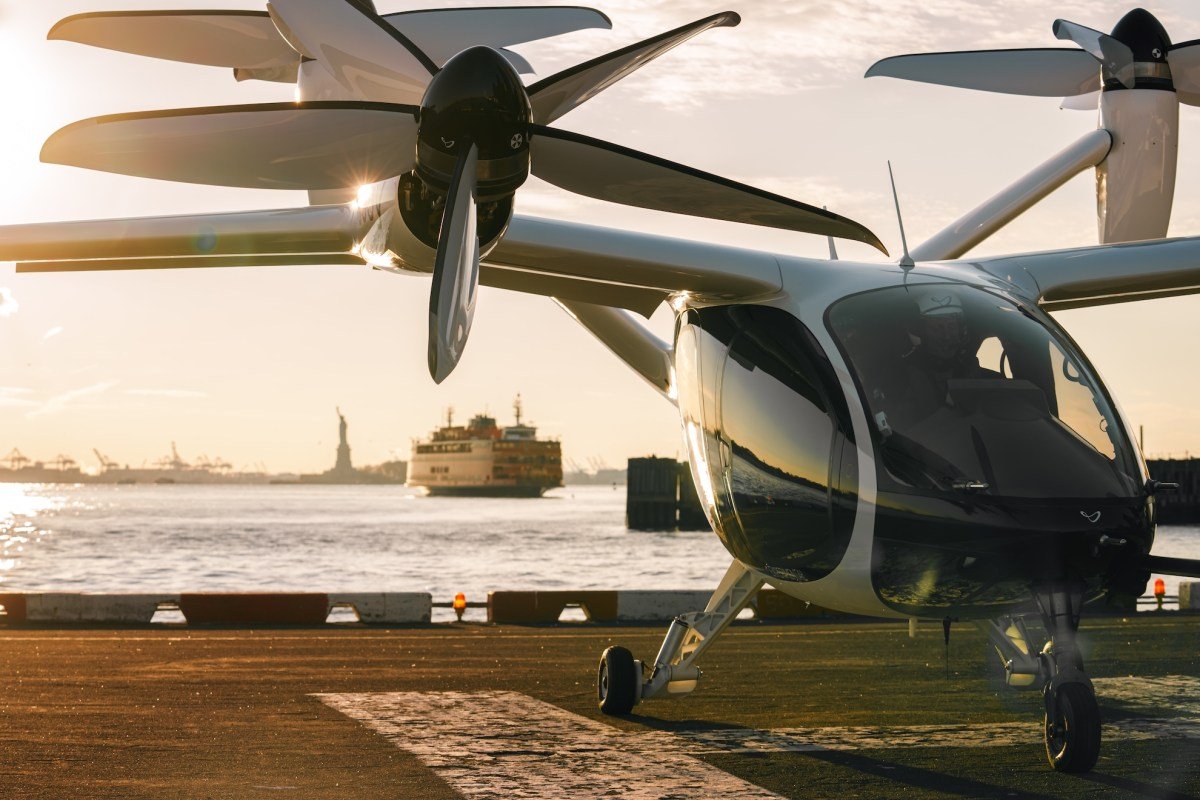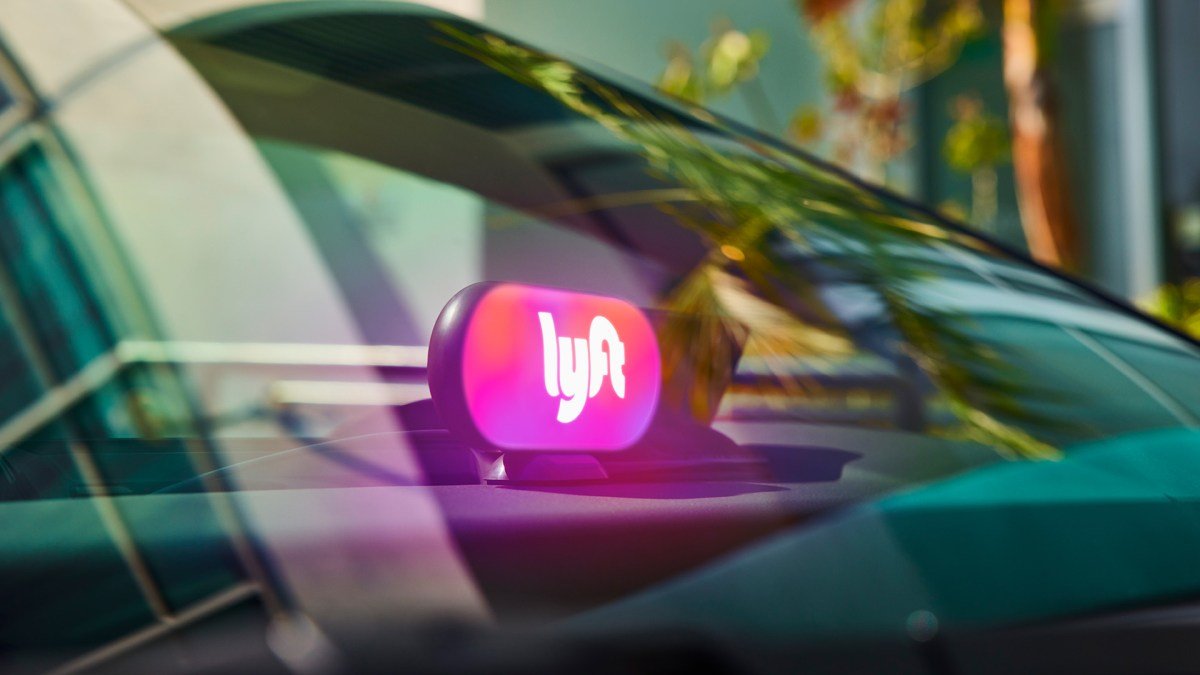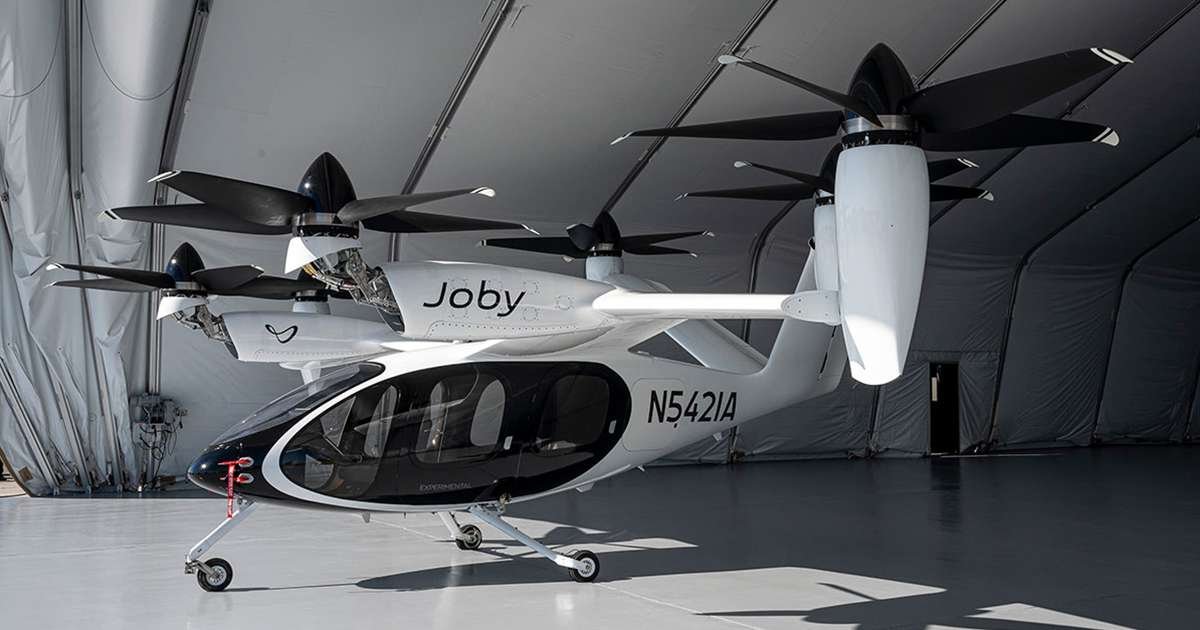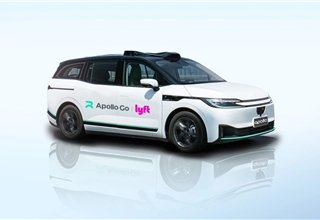Ride & Mobility
Joby Aviation to buy Blade Air Mobility’s ride-share business

Electric air taxi developer Joby Aviation has agreed to buy Blade Air Mobility’s helicopter ride-share business for as much as $125 million.
Joby is buying the Blade brand and the company’s passenger business, which includes operations in the United States and Europe. Blade founder and CEO Rob Wiesenthal will continue to lead the business, which will operate as a wholly-owned subsidiary of Joby.
Blade’s medical division, which transports organs, isn’t included in the transaction and will remain a separate company.
The deal gives Joby instant access to a network of 12 terminals in key markets like New York City — notably, a dedicated lounge as well as terminal bases at John F. Kennedy International Airport, Newark Liberty Airport, the West Side of Manhattan, the East Side of Manhattan, and Wall Street.
Blade, founded in 2014, doesn’t own a fleet of aircraft. Instead, the company has developed a digital network that allows passengers to book private rides on helicopters across several short-hop routes. The service has grown in popularity as well-heeled customers seek out ways to avoid traffic on their commutes from the suburbs into Manhattan, or to The Hamptons for weekends and holidays. The company, which also offers access to routes from Nice, France, to Monaco and Saint-Tropez, flew more than 50,000 passengers in 2024.
Joby Aviation founder and CEO JoeBen Bevirt described the deal as a “strategically important” acquisition that will support its launch of its commercial operations in Dubai and subsequent global rollout. The company said it will integrate its software, which is designed to manage air taxi operations, into Blade’s passenger service.
Joby, founded in 2009 by Bevirt, has been working for more than a decade to develop, certify and produce an electric vertical take off and landing (eVTOL) aircraft for commercial taxi service in cities. (The company is also pursuing a separate defense-related business.) Eventually, the branded Blade service will use electric air taxis, not helicopters in its service, according to the companies.
Techcrunch event
San Francisco
|
October 27-29, 2025
Toyota-backed Joby went public in 2021 through a merger with Reinvent Technology Partners, a special purpose acquisition company backed by LinkedIn co-founder Reid Hoffman and Zynga founder Mark Pincus.
Under terms of the agreement, Joby is holding back $35 million of the purchase price, which will be released if Blade hits certain performance milestones and retains certain key employees.
Ride & Mobility
Lyft and China’s Baidu look to bring robotaxis to Europe next year

Lyft’s European expansion will include Chinese-made robotaxis.
The U.S. ride-hailing company announced Monday it has made a strategic partnership with Baidu to deploy the Chinese tech giant’s Apollo Go autonomous vehicles across several European markets. The companies want to launch robotaxi services in Germany and the United Kingdom in 2026, pending regulatory approval.
If approved, Baidu’s RT6 vehicles, which are equipped with its Apollo Go self-driving system, will be integrated into Lyft’s ride-hailing app. Lyft CEO David Risher said the robotaxi service is an example of its “hybrid network approach, where AVs and human drivers work together to provide customer-obsessed options for riders.”
Lyft has historically centered its ride-hailing business on the United States, while rival Uber has expanded globally and into other areas, like food delivery. But earlier this year, Lyft bought its way into the European market when it agreed to acquire the German multi-mobility app FREENOW from BMW and Mercedes-Benz Mobility for about $197 million in cash.
The acquisition opened the European market to Lyft, which has only operated in the U.S. and Canada since it launched in 2012.
Lyft and Uber, both of which sunsetted their own internal autonomous vehicle programs, are in a race to lock up partnerships with companies like Baidu, which have developed the technology.
Uber has partnered with more than 18 companies, covering the spectrum of how self-driving systems can be applied to the physical world, including ride-hailing, delivery, and trucking. In this year alone, it has announced deals with Ann Arbor, Michigan-based May Mobility and Volkswagen, as well as Chinese self-driving firms Momenta, WeRide, and Baidu. Last month, Uber invested hundreds of millions of dollars into EV maker Lucid and autonomous vehicle technology startup Nuro in a bid to launch its own premium robotaxi service.
Lyft hasn’t had the same pace of deals as Uber, but has made a few partnerships in the past year, including a plan to add autonomous shuttles made by Austrian manufacturer Benteler Group to its network in late 2026. Lyft has also said it plans to put AVs from May Mobility on its network in Atlanta later this year.
Techcrunch event
San Francisco
|
October 27-29, 2025
Ride & Mobility
Joby Buys Helicopter Ride-Share Business for $125 Million

A Joby eVTOL aircraft (David Paul Morris/Bloomberg News)
[Stay on top of transportation news: Get TTNews in your inbox.]
Joby Aviation Inc said it plans to buy the helicopter ride-share business of Blade Air Mobility Inc. for as much as $125 million in stock or cash as the electric aviation pioneer seeks to expand its battery-powered air taxis into a ready-made market for its aircraft.
The acquisition encompasses all of Blade’s passenger business, including operations in the U.S. and Europe, as well as the Blade brand, Joby said in a statement, confirming an earlier report by Bloomberg. Blade’s medical division will remain a public company and rebrand, while partnering with Joby on medical transportation.
JJoby shares advanced as much as 18% on Aug. 4 to a record in New York. Blade surged 31%, raising its market value to nearly $400 million. The transaction is expected to close in coming weeks, Joby said.
Blade sells per-seat helicopter trips from New York City to nearby airports and resort towns. The company, which went public through a merger with a special purpose acquisition company in 2021, hasn’t reported an annual a profit since it listed. The company’s shares have fallen 10% this year, giving it a market value of $309 million.
🚨We’ve been working on something big: today, we announced a definitive agreement to acquire @flybladenow‘s urban air mobility passenger business. Our team is about to get stronger. 🚁+ ✈️ = 💪 https://t.co/DGxyoA76vU
More details in the thread. (1/4) pic.twitter.com/twrUBIqeNf
— Joby Aviation (@jobyaviation) August 4, 2025
Backed by Toyota Motor Corp., Joby expects to have five aircraft in one of the final phases of certification next year as it aims to start commercial flights in early 2026. The $13.6 billion company announced plans last month to double production capacity at its plant in Marina, Calif., to manufacture up to 24 aircraft a year.
According to Joby, Blade flew more than 50,000 passengers in 2024 from a network of 12 urban terminals. Joby, which plans to carry its first passengers in Dubai next year, said the purchase will allow it to speed its commercial efforts by using Blade’s existing infrastructure and customer base.
Written by Siddharth Philip and Ed Ludlow
Want more news? Listen to today’s daily briefing below or go here for more info:
Ride & Mobility
Baidu’s Apollo Go, Lyft to co-deploy large-scale Robotaxi service in Europe

Shanghai (Gasgoo)- On August 4, Baidu’s autonomous ride-hailing arm Apollo Go announced a strategic partnership with global mobility leader Lyft to launch driverless ride services in Europe via the Lyft platform.
The rollout will begin in 2026 with Apollo Go’s sixth-generation fully autonomous vehicles, namely RT6, operating in Germany and the UK, with plans to scale the fleet to several thousand units across Europe.
The vehicles will be equipped with Baidu’s industry-leading sensor suite, 10-layer safety redundancy system, and advanced human–machine interaction design.
Photo credit: Apollo Go
Lyft CEO David Risher said Baidu’s position as the world’s largest autonomous ride-hailing platform, coupled with its deep operational experience, would enable the companies to deliver safe, reliable, and privacy-focused autonomous mobility to millions of European riders.
Baidu founder Robin Li called the partnership a significant milestone in Apollo Go’s global expansion strategy, noting that the collaboration would combine Baidu’s autonomous driving technology with Lyft’s operational expertise to deliver safer, greener, and more efficient transport to European users.
The partnership will center on four pillars to accelerate Europe’s transition to autonomous mobility:
Advanced technology deployment – Apollo Go’s purpose-built, all-electric RT6 Robotaxis are designed specifically for ride-hailing, powered by Baidu’s Apollo Autonomous Driving Foundation Model (ADFM) and six generations of real-world testing. The RT6 will be bookable directly through Lyft’s platform.
Proven operational scale –With service coverage spanning more than 3,000 square kilometers in Wuhan and a track record of over 11 million rides worldwide, Apollo Go has shown it can successfully transition from pilot programs to full-scale commercial operations in major cities—a capability that provides a solid springboard for its European launch.
Strategic market entry – Lyft will oversee operations and marketplace management, while Baidu supplies the vehicles, validates the technology, and provides comprehensive technical support.
Local integration – Lyft will leverage its acquisition of European ride-hailing firm FREENOW , active in nine countries and over 180 cities, to accelerate autonomous vehicle deployment, while working with local regulators and taxi operators.
The move follows Apollo Go’s recent expansion into Dubai and Abu Dhabi, as well as a newly announced agreement with Uber to integrate thousands of driverless cars into Uber’s global network.
Apollo Go now operates a fleet of over 1,000 autonomous vehicles in 15 cities worldwide, having completed more than 11 million passenger trips and driven over 170 million kilometers without a major safety incident.
-

 Brand Stories2 weeks ago
Brand Stories2 weeks agoBloom Hotels: A Modern Vision of Hospitality Redefining Travel
-

 Brand Stories1 week ago
Brand Stories1 week agoCheQin.ai sets a new standard for hotel booking with its AI capabilities: empowering travellers to bargain, choose the best, and book with clarity.
-

 Destinations & Things To Do2 weeks ago
Destinations & Things To Do2 weeks agoUntouched Destinations: Stunning Hidden Gems You Must Visit
-

 Destinations & Things To Do1 week ago
Destinations & Things To Do1 week agoThis Hidden Beach in India Glows at Night-But Only in One Secret Season
-

 AI in Travel2 weeks ago
AI in Travel2 weeks agoAI Travel Revolution: Must-Have Guide to the Best Experience
-

 Brand Stories1 month ago
Brand Stories1 month agoVoice AI Startup ElevenLabs Plans to Add Hubs Around the World
-

 Brand Stories3 weeks ago
Brand Stories3 weeks agoHow Elon Musk’s rogue Grok chatbot became a cautionary AI tale
-

 Asia Travel Pulse1 month ago
Asia Travel Pulse1 month agoLooking For Adventure In Asia? Here Are 7 Epic Destinations You Need To Experience At Least Once – Zee News
-

 AI in Travel1 month ago
AI in Travel1 month ago‘Will AI take my job?’ A trip to a Beijing fortune-telling bar to see what lies ahead | China
-

 Brand Stories2 weeks ago
Brand Stories2 weeks agoContactless Hospitality: Why Remote Management Technology Is Key to Seamless Guest Experiences













You must be logged in to post a comment Login